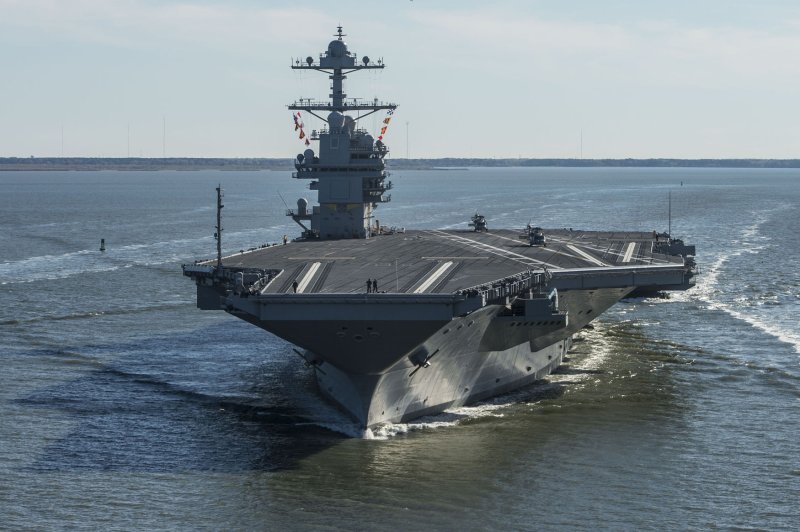General Atomics received a $12.5 million contract on Thursday for repair work on the U.S. Navy's EMALS and AAG aircraft systems, including those aboard the USS Gerald R. Ford, pictured. Photo by MCS2 Ridge Leoni/U.S. Navy/UPI |
License Photo
Oct. 4 (UPI) -- General Atomics won a $12.5 million contract modification for repairs to the Electromagnetic Aircraft Launch Systems and advanced arresting gear on Ford-class carriers of the U.S. Navy, the Defense Department announced.
The contract, announced Thursday, calls for "repair of repairables" and technical assistance regarding the return to operational status of aircraft carriers' EMALS and advanced arresting gear.
The new deal follows a series of contracts under which the San Diego-based company is involved in converting steam-powered catapults on Nimitz-class carriers to linear induction electric motors to launch aircraft. Tests have indicated that numerous modifications need to be made to the system.
EMALS was developed for the Navy's Gerald R. Ford-class aircraft carriers. The USS John F. Kennedy, USS Enterprise and USS Gerald R. Ford are scheduled to install and use the modification.
The new process of launching aircraft from aircraft carriers, and safely capturing them when they return in an "arrested landing," reduces stress on launched airframes, costs less to operate, is capable of launching a wide range of aircraft weights and reduces a need for desalinization to obtain fresh water.
The software-controlled AAG consists of energy absorbers, power conditioning equipment and digital controls, with lower maintenance and manpower requirements. It is designed to provide high reliability and safety margins, and allows the arrest of a greater range of aircraft and reducing the planes' fatigue impact load.
In tests aboard the USS Gerald R. Ford, EMALS-equipped catapults failed 10 times in 747 launches, far below the threshold of acceptance, and tests were pushed back two years because of reliability issues.
The new contract specifies that work will be completed by September 2020.















